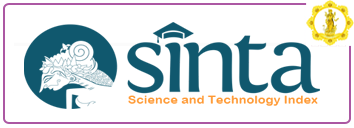Bahasa Kawi: Implementasinya Sebagai Tema Kegiatan Organisasi Kemahasiswaan di Lingkungan Universitas Hindu Negeri I Gusti Bagus Sugriwa Denpasar
DOI:
https://doi.org/10.25078/ds.v2i2.1281Keywords:
Kawi Language, Implementation, Student Organization, UHN IGBS DenpasarAbstract
Nowadays, there are generations who are trying to restore the existence of the Kawi language through various positive activities and have major implications for the development of the Kawi language. One of them is carried out by student organizations within the State Hindu University I Gusti Bagus Sugriwa Denpasar (UHN IGBS Denpasar). Students who are members of the student organization give a new nuance to the implementation of the use of the Kawi language as outlined in the form of giving the theme of student activities. In this study, the researcher attempted to analyze the implementation of Kawi as the theme of student activities and to analyze the logical arguments why students prefer Kawi compared to other languages in determining the theme of the activity. The entire problem formulation will be studied by researchers using linguistic landscapes theory and implementation theory with qualitative research methods. All the results in this study will be described in the form of interpretive descriptive. With the intention that all the findings in this study are not only descriptive but able to represent the intent and meaning of the data obtained. In addition, all data findings in this study used library research methods and field research through purposive sampling interview techniques. The findings in this study provide a clear picture that the implementation of Kawi language as the theme of student activities shows that students of UHN IGBS Denpasar feel proud to have Kawi as a literary language that must be preserved. This sense of pride is shown through the media or the way to carry out student activities as an effort to preserve it. This is supported by the logical argument of students who stated that they prefer Kawi language as the theme of the activity compared to other languages because in addition to preserving the Kawi language it is also to brand the organization as a vehicle for expression of students who love cultural values. The implications will be very large because it will indirectly lead the general public to be interested in learning the Kawi language and Hindu literatures such as lontar, Puranas, chronicles, and so on.









